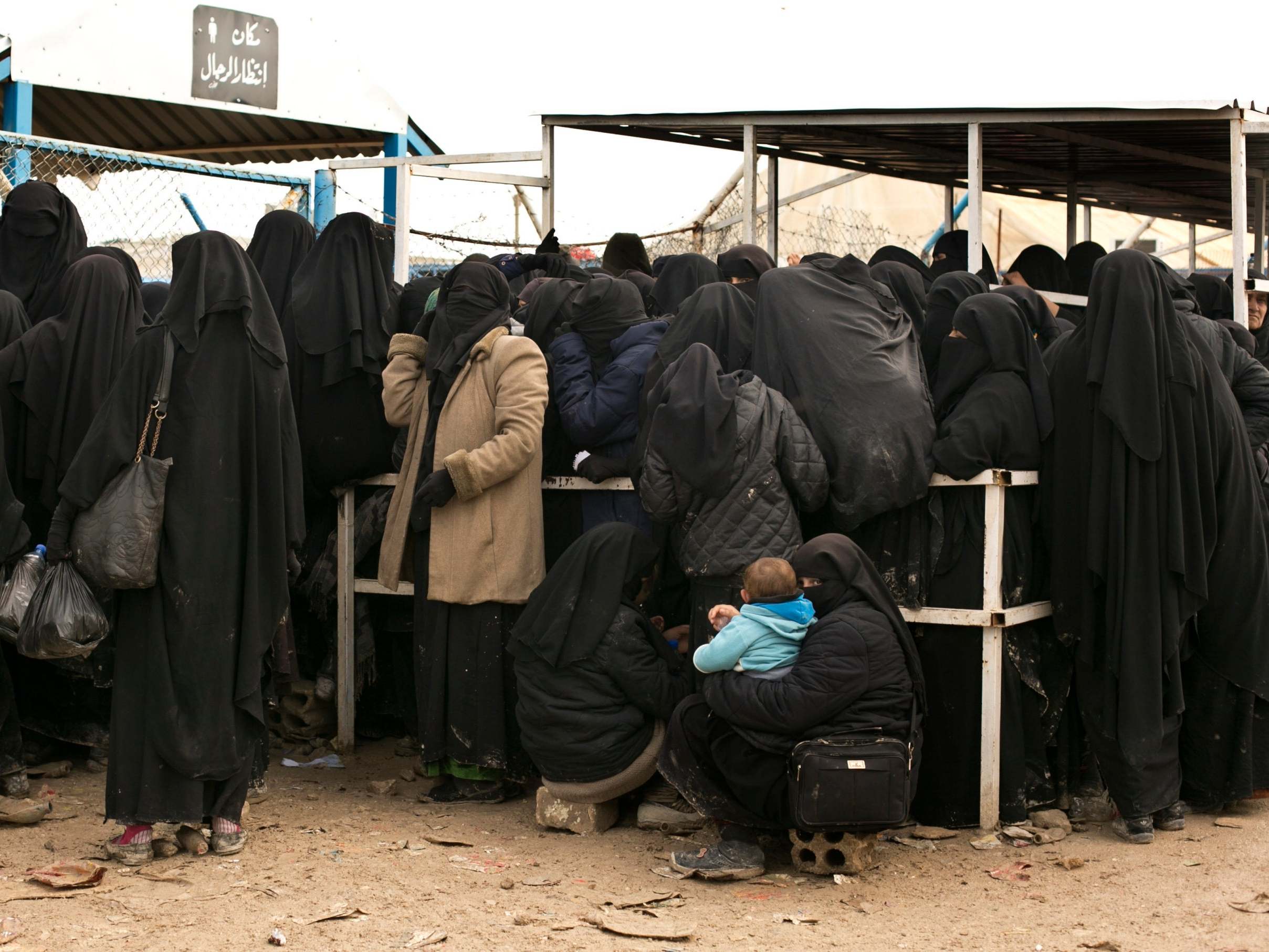US women suspected of Isis ties repatriated from Syria with their children
Fate of Isis prisoners has been subject of heated debate between US and Europe

Your support helps us to tell the story
From reproductive rights to climate change to Big Tech, The Independent is on the ground when the story is developing. Whether it's investigating the financials of Elon Musk's pro-Trump PAC or producing our latest documentary, 'The A Word', which shines a light on the American women fighting for reproductive rights, we know how important it is to parse out the facts from the messaging.
At such a critical moment in US history, we need reporters on the ground. Your donation allows us to keep sending journalists to speak to both sides of the story.
The Independent is trusted by Americans across the entire political spectrum. And unlike many other quality news outlets, we choose not to lock Americans out of our reporting and analysis with paywalls. We believe quality journalism should be available to everyone, paid for by those who can afford it.
Your support makes all the difference.Two American women who were detained for Isis links in Syria have been repatriated to the US together with their six children, the second such transfer between the two countries since the defeat of the terror group’s caliphate.
The women, who have not yet been named, were handed over to US custody by Kurdish forces in Syria “at the request of the US government”, according to an official.
They had been among thousands of foreign women held in de-facto detention camps in northeast Syria on suspicion of Isis membership, most of them rounded up as they fled the group’s territory earlier this year.
Their fate has been the subject of heated debate among western countries, many of which have refused to take back their citizens who joined the extremist group’s cause.
Washington has repeatedly called for European countries to bring home hundreds of its citizens – including the fighters – arguing they pose a security risk for as long as they are held in Syria. Kurdish forces say they cannot continue to hold thousands of Isis prisoners and their families indefinitely. The US move is likely to increase the pressure on Europe to follow suit.
“At the request of the US government, and according to the desire of the citizens to return to their country without any pressure or coercion, the self-administration of north and east Syria handed over two American women and six children to the US government,” said Abdulkarim Omar, co-chair of foreign relations in the Kurdish-led region.
An estimated 18 British women and 30 children are currently languishing in camps across the Kurdish-held north of the country. The British government has cited security fears for not bringing its citizens back to the UK. Prosecuting Isis members would be extremely difficult due to a lack of available evidence of specific crimes they committed, raising the risk that they would be released in the UK to carry out attacks.
But conditions in the largest of the camps have led to the deaths of dozens of children since the influx began in December. More than 200 have died at the camps or on the way to it since then, the latest UN figures show, most of malnutrition or disease.
Among them was the infant child of Shamima Begum, named Jarrah, who died in one of the camps. The British teenager fled her home in London to join Isis in Syria in 2015.
Signalling a shift in policy this week, defence secretary Penny Mordaunt said the government was studying ways to bring back “innocent” children of parents who went to join Isis.
“I think the British public would agree we absolutely have an obligation to innocents who were taken into a war zone,” she said on Tuesday.
“Extracting them would be a very difficult thing to do and would in all practical honesty require the practical consent of the parents who were there,” she added.